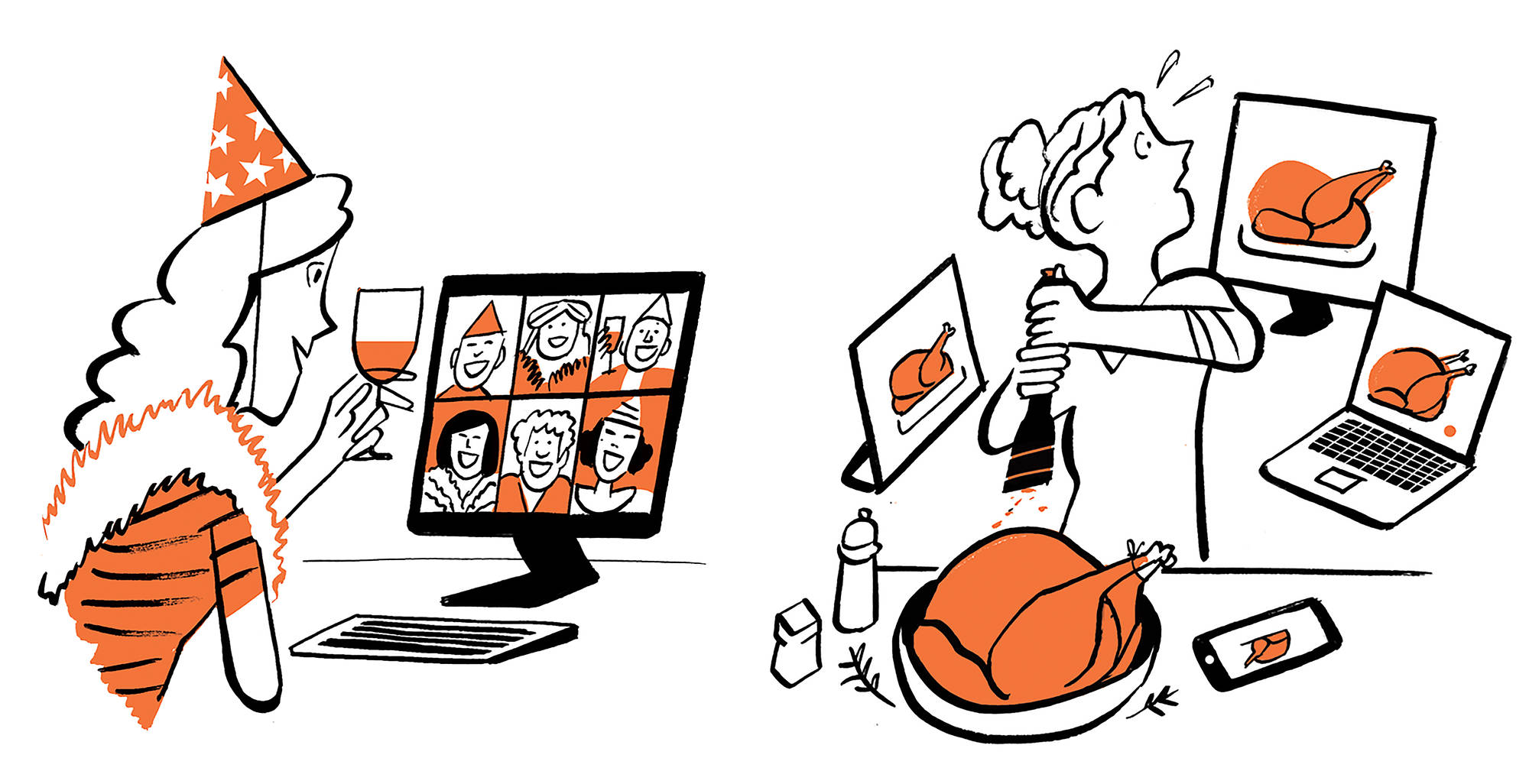Americans Relying on Digital Devices For Watching News Now More Than Ever.

Tue, Feb 02, 2021 08:59 PM
8-in-10 adults get their news "often" or "sometimes" online, a development that has been related to increased polarization by researchers. About every part of our lives has been touched by this pervasiveness, including the way we stay on top of current events. Americans are consuming news more than ever on the internet and use the internet for business, according to a recently released Pew Research Center survey. "Of the 9,220 U.S. adults interviewed by Pew between Aug. 31 and Sept. 7, 2020, more than 8-in-10 (86 percent) said that they "sometimes" or "often" get their news from a smartphone, computer or tablet, with 60 percent falling into the "sometimes" category.
By far the most popular platform for Americans trying to catch up on the news was the internet. After that, 68% of respondents said they receive their news from TV, 50% from radio, and just 32% from print. Just 10% of Americans still turn to print media "often," down from 20% in 2016, for their news.
Understandably, with older Americans much less likely to use digital devices for their news rather than cable tv, this pattern is divided along age lines. More frequently than smartphones, laptops, or tablets, people over 50 still use television for news, although the number goes down significantly for anyone younger. Just 25 percent of Americans between the ages of 30 and 49 said they received their TV news "often," and 16 percent said the same among 18-to-29-year-olds.
Also, Read: How To Get Cheaper Cable TV Service?
Consumption About The News on Social Media Is Also Increasing.
Many of these customers with digital news find their news via social media. "More than half of adults get news from social media "sometimes" or "often" (55 percent), up from 47 percent in 2018, according to a 2019 Pew Research Center survey. But most users are unhappy with their experience, despite this rapid adoption.
Most people believe that U.S. social media companies have "too much control" over the mix of news that people see (62%) and that the efforts of these companies contribute to a "worse mix of news" for users (55 percent ). Very few individuals appear to be comfortable with the current circumstance, with just 21% claiming that social media firms have the "right amount" of influence over the news people see.
According to the Pew Center's respondents, the main issues are that social media firms prefer news organizations that generate attention-grabbing stories (88%), have a lot of social media followers (84%), or whose coverage has a certain political role (79 percent ).
And those negative attitudes toward social media might be warranted. A separate Pew study from 2020 found that those who depend on social media most often for their political news are less informed than almost any other group.
In Pew's nine-question survey, only 17% of this group reported "high political knowledge" ratings, compared with 45% of people who used news websites or apps the most, 42% who used radio, and 41% who used paper. Those relying on local TV for their political news were the only category that posted worse scores than social media users, with 10 percent recording a "high political knowledge" score.
News Consumption and Polarization increase with Broadband Access.
For years, this relationship between news consumption and access to the internet has been closely examined, and much of the evidence points to greater polarization. This is not simply because online news is already more skewed, but because it is consumed a lot more by individuals. Those with a broadband internet connection spend almost 22 additional hours per month online relative to those with dial-up connections, according to one often-cited report from the University of Pennsylvania. And much of the time is spent reading political news and thoughts and sharing them.
One 2017 study published in the American Journal of Political Science paired data from 2004 to 2008 on county-level broadband penetration with data from the National Annenberg Election Studies on the partisan effect from the same time. The relationship was clear: "Broadband internet access boosts partisan hostility."
Featured Plan

Bundles starting from $39.99/mo.
With Xfinity, you can get an amazing internet speed up to 1000 Mbp, over 260+ of digital TV channels, unlimited talk time nationwide, business plan, and home security services. Xfinity Comcast is the largest cable provider in the US.
View More Deals! (833) 396-3209